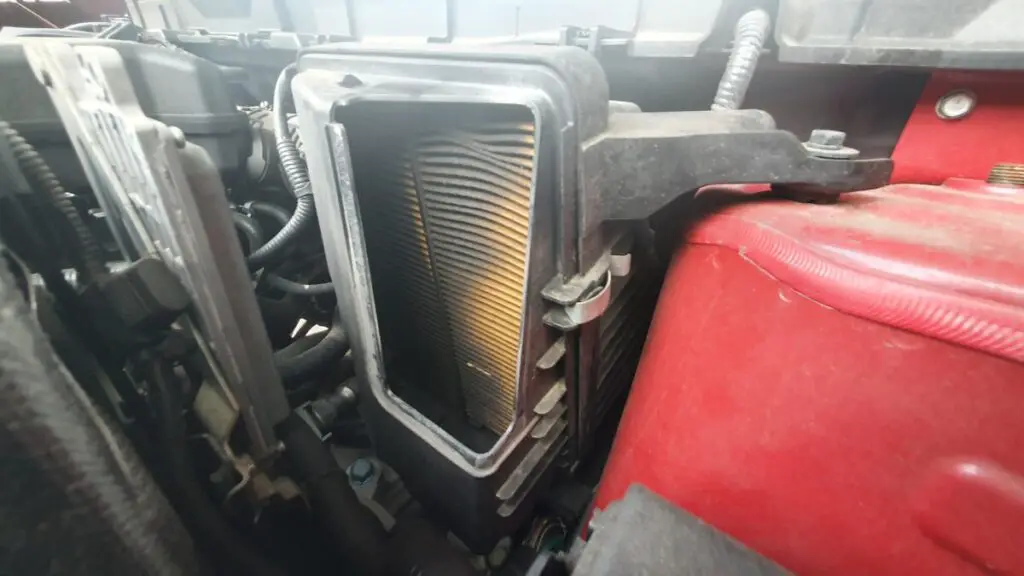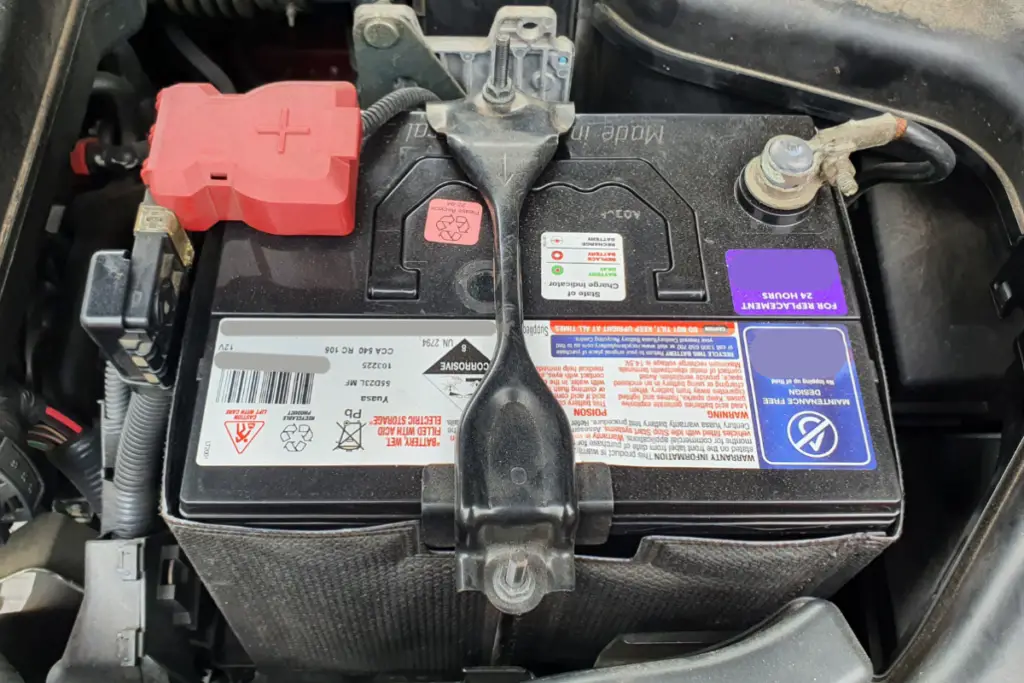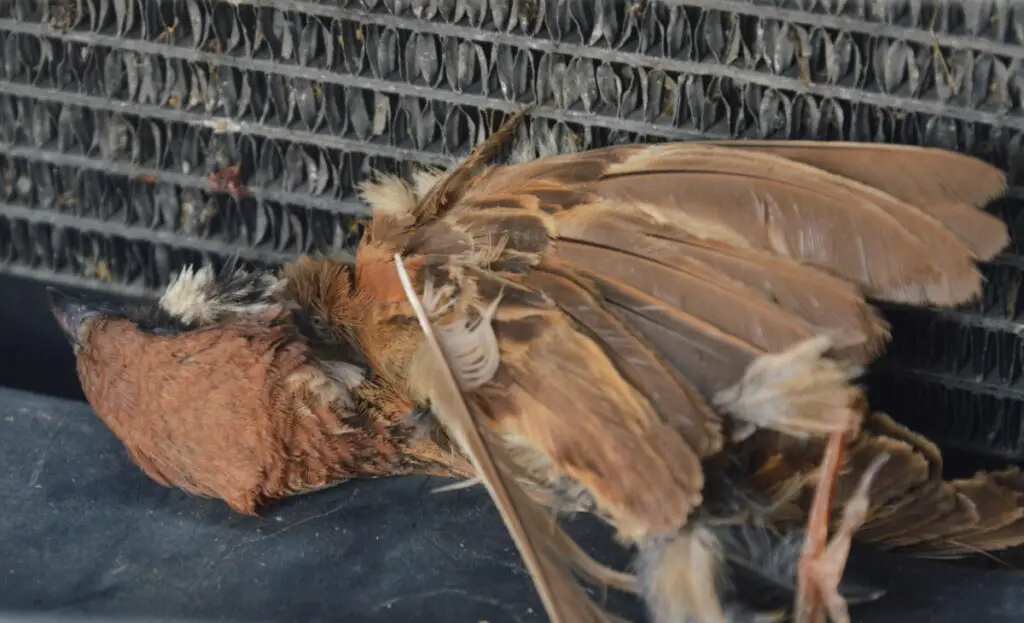Air conditioning units have played a significant role in upgrading our lifestyles. They help us beat the scorching summer heat, reduce humidity, and enjoy better air quality. However, as with other machines, an underlying problem with your AC might cause it to smell bad. People, for instance, often complain about their AC units emitting a vinegar-like odor.
Your car or home AC may smell like vinegar because of clogged air filters, mold growth, gas leak, faulty electric motor, clogged condensate pan, or a worn-out fuel filter.
Although the vinegar smell doesn’t risk your health, the unbearably strong odor compromises the ambiance. Plus, it might compel you to turn the unit off, keeping you from enjoying the cool air. An insight into common AC problems and quick fixes will help you eradicate the odor and use your cooling machine to the maximum.]

Reasons Why Your AC (House or Car) Smells Like Vinegar
An unpleasant odor is pretty much expected if you recently mounted an AC in your living room or bought a new car. This smell, however, dissipates after the first use. Nonetheless, if you are a regular AC user and your machine suddenly acts strangely, emitting a vinegar smell (a sour acetic acid odor), it’s a red flag and must be addressed immediately.
Spot your AC problem in the list below and find your ideal solution to keep enjoying the cool, clean and fresh indoor air.
Clogged Air Filter

An air filter is arguably the most important component of your AC. It is responsible for keeping dust, debris, and other pollutants from entering your home or car. While it performs reasonably well in removing airborne particles, it requires maintenance to keep it up and running.
A dirty air filter may produce a vinegar smell typically due to mold and dust buildup.
Fix
Two popular methods to clean the dirty air filters include: blowing out and beating.
Both offer an excellent way to remove dirt and unclog the air filters. However, it’s best to hire a professional for the purpose, as slight mishandling may create cracks in the filter paper.
Besides, while minor clogs can be fixed with cleaning, severely damaged air filters might need replacement.
For vehicles, another trick is to just spray a little Lysol or any other disinfectant spray into the air intake of the AC. This will quickly kill any mold and bacteria, which should eliminate the sour vinegar smell. Some claim that household sprays could damage the internal components of the vehicle, so alternatively you can use an AC cleaning product designed for vehicles.
If you simply have an old filter, it’s probably best to just replace it – like I just discovered as I was taking this photo of my car!
Excessive Condensation
Excessive condensation typically occurs when the condensation pan overfills. This can lead to mold and bacteria growth that causes the vinegar smell.
A properly working condensate drainage wouldn’t cause the problem. However, water leaking from the condensation pan might produce a vinegar smell. Besides, it also leads to moisture on the walls and ceiling.
Note that excessive condensation typically happens due to a clogged drain, rusted condensate pan, damaged drainage pipe, or a clogged air filter.
Fix
Because multifold reasons contribute to excessive condensation, you must inspect the condensate pan, drain pipe, and air filters to spot the issue.
You might need to clean the filters or replace the damaged drain pipe to eliminate the notorious vinegar smell. If you’re dubious about your DIY skills, better contact a professional to have your AC inspected.
Battery Leak

Chemical leaking from a car battery makes up for another reason for the vinegar smell. Nickel metal hydride or lead acid batteries produce a hydrogen sulfide smell when they go bad. Many people identify the sulfide smell as rotten egg odor, while others believe it smells like vinegar.
It isn’t uncommon for a car’s battery to leak over time. This may happen due to rusting terminals. Besides, overcharging expands the car battery, leaking an electrolyte.
Batteries that have bulging sides or are bulging on top is a clear sign the battery is damaged and could be leaking.
A faulty or leaking battery takes a toll on the car’s air conditioner, emitting an unpleasant odor on turning it on.
Fix
Make sure you follow the best practices as a car owner. Avoid overcharging the car battery if you own an electric car. Plus, have your vehicle inspected every 6 months.
If you encounter a battery leak, take your car to the dealership to have the problem sorted.
Dead Animal

One of the common reasons your AC unit might be emitting a vinegar odor is dead animals stuck in the air ducts. Because air ducts make up for a warm and safe place for birds, they often build their nests. Besides, rats often reside in the HVAC systems.
Animal corpses eventually contribute to dirt and mold growth inside your system. The mold mixes with HVAC system water droplets, leading to a vinegar odor. In fact, if a dead animal is somewhere close to the blower, the smell would be even more intense.
If you notice a bad smell (or vinegar smell in your car), you may want to check that a dead animal hasn’t lodged itself against the AC filter. I personally found a dead bird on the AC filter in my car after about a month of bad smells gradually increasing inside the car!
Fix
Consider inspecting the air ducts to eliminate the vinegar odor from organic material buildup. Make sure you wear protective gloves and a mask to protect yourself from bacteria. Carefully remove the dead animal from the duct to restore your AC to functioning optimally.
If you find a dead animal against any sort of filter (car or HVAC) you should probably replace the filter, so it doesn’t become a breeding ground for germs.
Mold Growth on Coils and Fins

Moisture in your home or car can lead to mold growth on fins and coils. You’ll smell a pungent vinegar odor as soon as you turn on the AC. This typically happens because the water vapors in the air cool down and condense on the coil. Besides, a clogged evaporator drain may collect the water, emitting a nasty odor.
Fix
While cleaning the mold offers a temporary solution, we’re on the hunt for a permanent fix. As such, you must take steps to prevent moisture buildup on the evaporator.
The key is to turn off the AC a few minutes before getting home or parking your car. Plus, let the fan run to the maximum setting. This will dry the system and keep it from condensation buildup.
On a side note, use a gentle cleaner dedicated to car evaporators if you intend to clean the mold yourself. Several cleaner options on the market foam up upon application, coating the entire evaporator coil. This quickly washes down the mold, leaving the evaporator clean.
Blocked Condensate Pan
A blocked condensate pan (drain pan) starts to leak condensate into your home or vehicle cabin, potentially leading to microbiological growth, poor air quality, and even a vinegar smell. When you turn on the AC, it begins to produce moisture. The condensate drains it out via the drain line. Over time, it becomes blocked due to dirt and debris accumulation.
Consider inspecting the drain line and the surrounding area to confirm blockages.
Fix
Whether it’s mold, bacteria, or accumulated dirt, you need to remove it to eliminate the nasty vinegar odor from your AC. Use a gentle cleaner to scrub away the mold, or consider making an all-natural solution.
Baking soda and water mixture make up for a perfect solution to remove stubborn mold and accumulated dust from the condensate pan.
Bacteria Accumulation on Air Handler

HVAC systems
HVAC Air Handlers, also called fan coil units, circulates air through the ducts using an electronic blower. They contain an evaporator coiling coil, and a vinegar smell may occur from bacteria or mold growth on or around the air handler – typically from excessive condensation.
Also, HVAC air handlers will typically have an air filter that can develop smells which circulate throughout your home if you don’t regularly replace them.
Vehicles
Most cars today have both an AC unit and an air handler. However, if you own an old model, you probably only have an air handler – not the whole AC system. Although the mechanism behind both systems is similar, the only difference is that the air handler doesn’t convert warm air to cold air. Instead, it only circulates the air.
However, the air handler may give off a vinegar smell when it becomes moist or defrosts.
Fix
An air handler requires maintenance every 6 months. Mix a mild detergent (or preferably vinegar) with lukewarm water to clean the air handler coils. Alternatively, you can ask a professional to do it for you.
Faulty Electric Motor
The air conditioning motor may produce a vinegar odor upon releasing ozone. It typically smells like burnt wires or chlorine, but a few people identify it as a vinegar smell. You may overlook motor issues initially, but you’ll spot the problem as the odor gets intense.
Although an ozone-emitting motor is a common issue, a faulty blower motor can also emit a vinegary stench. The blower is responsible for pushing hot or cool air inside HVAC ducting (or through the vehicle cabin). However, a clogged blower might fail to function adequately, causing an unpleasant odor.
Fix
Electric motor problems are best left to experienced technicians. You can call in a professional and have them identify the root cause of the faulty motor.
Moldy Ductwork or Air Vents

Mold growth doesn’t happen overnight. Perhaps you live in a humid environment, and your vehicle is exposed to moisture. As a result, your car collects the water droplets instead of evaporating them.
When the water droplets mix with the dust, they accumulate inside the air vents. This offers a favorable environment for mold spores to land and thrive. Soon the mold grows on the vents, emitting a pungent vinegar odor. A few tell-tale symptoms of mold infestation in your AC include:
- Nose, eye, and throat irritation
- Unexplained headache on stepping in your vehicle
- Allergy symptoms (rashes, stuffy nose)
- Visible mold around the intake vents and air ducts
Fix
The only way to eliminate mold is to get rid of moisture. Here are a few tips to help you:
- Turn off the AC a few minutes before parking your car. Besides, switch on the fan to dry out the AC system. This will prevent moisture buildup inside the car and keep it from mold infestation
- Get a quality dehumidifier for your vehicle as it performs an excellent job reducing water droplets in the air
- Regularly clean the drip pans and insulate the air ducts to minimize condensation
- Seal the leaks (as a result of thumb, use EPA-approved sealants).
Malfunctioning Fuel Pressure Sensor
The fuel pressure sensor is responsible for regulating fuel use in cars. It also keeps the catalytic convertor from getting blocked or overheating. In the event the pressure sensor goes bad, the convertor fails to exhaust byproducts that leave your vehicle through the tailpipe. As a result, you may smell a noxious vinegar odor as you step inside your car.
Fix
The only way to fix a faulty fuel pressure sensor is to replace it. Take your car to the dealership for a quick fix.
Leaking Refrigerant
A leaking refrigerant might also produce a strong vinegar odor. Refrigerant is a liquid chemical used in AC units. Several reasons cause it to leak, from faulty connections to compressor damages and poor maintenance to malfunctioning repair work.
However, the smell of leaking refrigerant occurs due to its breakdown. Besides, the acidic chemical can also result from leaking coolant in the cooling system. However, before proceeding with the fixes, it’s best to perform a quick test to confirm leaks.
Turn on the defrosters and observe if they blow a mist on the windshield. Plus, notice is the antifreeze level of your vehicle drops. If you spot the mist and the coolant level goes down, there’s a leak.
Fix
Leaking refrigerant requires a professional fix. Therefore, it’s best to take your car to the dealership and get it fixed by an expert.
Faulty AC Component
Lack of maintenance can cause water to stand in the air duct. Consequently, it may lead to a defective pulley, faulty air conditioning compressor, or malfunctioning compressor clutch. Besides, excessive debris in vents or electric short can also lead to a vinegar odor.
Fix
Fixing a faulty AC component isn’t as easy as cleaning the air filters. To begin with, you must know which part of AC contributes to the problem. This requires you to take your car to a professional.
Alternatively, you can contact an experienced technician and have them inspect your home AC. They will spot the malfunctioning component and replace it to get your AC working without emitting unpleasant odors.
Does Mold Smell Like Vinegar?
Although people typically describe mold odor as “musty” or “earthy,” it also smells like vinegar to some.
Our receptors function differently due to genetic differences. For instance, one person may describe mold as smelling like wet socks; another may compare its odor to vinegar. Therefore, because a few people consider mold’s smell vinegary, it wouldn’t be wrong to say that it does smell like vinegar, too.
Does Refrigerant/Freon Smell Like Vinegar?
While ozone-emitting motor remains a common cause of vinegar smell coming from your AC, a refrigerant leak might have an odor similar to vinegar.
People typically describe freon’s smell as sweet, unlike the vinegar that smells acidic. However, a few car owners with refrigerant leaks reported their AC smelled like vinegar. Therefore, the refrigerant may smell like vinegar to some.
How Do I Fix My AC Smelling Like Vinegar?
Regular maintenance and air fresheners can help eliminate the vinegar smell.
Although spotting the unique problem and referring to its ideal solution is a priority when your AC smells like vinegar, you must take a few preventive measures to avoid the issue in the future.
Make sure you call a professional every 6 months to maintain your AC. Plus, take your car to the dealership for annual AC maintenance. Finally, use air purifiers and fresheners in your home and car to keep the air fresh and pleasant smelling.

